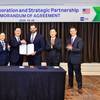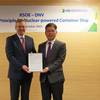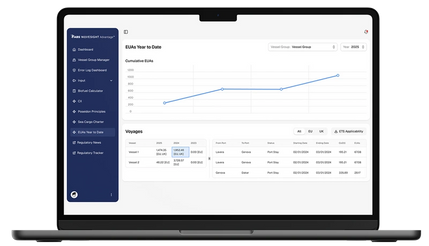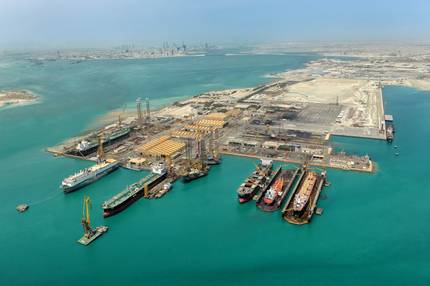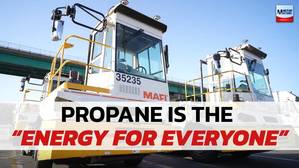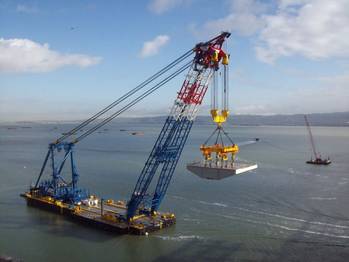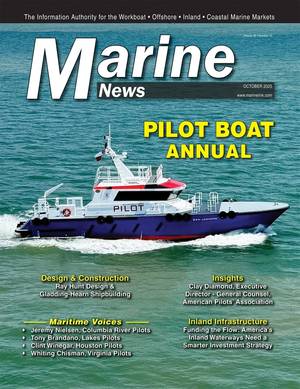Interferry 2025: Ferries at the Crossroads of Regulation, Safety and Electrification
As the global shipping industry grapples with a plethora of regulatory, technological and sustainability shifts, few sectors embody both the challenges and opportunities as acutely as the ferry industry.
Interferry leads the charge to ensure there is balance, rationalizing legislative mandate with market, technical and economic reality. Interferry is the trade association representing the worldwide ferry sector, an at the helm is Mike Corrigan, CEO, who has spent the past several years strengthening the organization’s voice in global regulatory forums while also championing technological innovation and safety initiatives across its now nearly 290-strong membership. In October 2025, the industry will convene in Sorrento, Italy, for Interferry’s 49th annual conference, an event that Corrigan says will set the tone for the industry’s next chapter.
Regulation: One Size Doesn’t Fit All
When asked to identify the most pressing issues facing ferry operators, Corrigan is quick to point to greenhouse gas regulations, particularly the tensions between EU directives and IMO rules. “There’s a real risk of double taxation and operational conflicts,” he said. “Unlike cargo or container vessels that sail long distances, ferries make multiple short trips every day. The emission profile is different, and the regulations need to reflect that.”
Interferry’s role, he said, is to ensure ferries aren’t treated as an afterthought. By representing members at the IMO, EU, and other regulatory bodies, the organization ensures that emissions policies, safety codes, and infrastructure investment frameworks recognize the unique operating realities of ferries. “You can’t put a square peg in a round hole when it comes to regulation,” Corrigan says. “Our job is to make sure policymakers understand that.”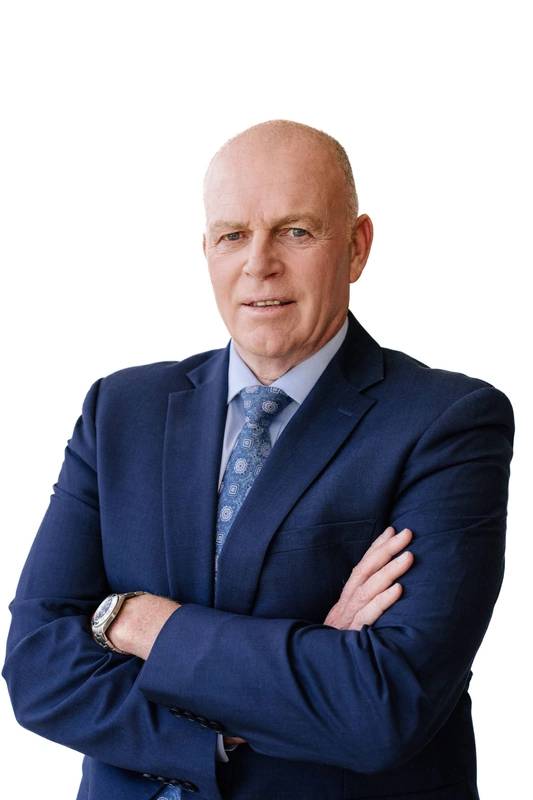 “We need municipalities, utilities, and regulators to step up and help ferry operators access the power we need.”
“We need municipalities, utilities, and regulators to step up and help ferry operators access the power we need.”
-Mike Corrigan, CEO, Interferry
Image courtesy Interferry
Electrification: Promise Meets Infrastructure Reality
The ferry industry has long been an early mover in decarbonization. Short, regular routes lend themselves to electrification, and operators from Scandinavia to San Francisco are proving the potential of battery-powered ferries.
A headline-grabbing example is the 130-m all-electric ferry built by Incat in Australia for South America’s Buquebus, a 40+ megawatt battery-powered vessel capable of carrying passengers and vehicles across a two-hour route. Corrigan points out that this is more than just a milestone—it’s a game changer. “We’ve seen hybrids before, but this is the first pure battery ship of its scale. It shows what’s possible.”
Following Buquebus, Denmark’s Molslinjen has ordered two similar ships, while Washington State Ferries and BC Ferries are advancing hybrid and full-electric programs in North America. Yet for all the excitement, one fundamental challenge looms large: grid capacity. “The bottleneck is getting enough electricity to the terminals,” Corrigan said. “We need municipalities, utilities, and regulators to step up and help ferry operators access the power we need.”
Safety is Job One
Alongside decarbonization, Interferry remains committed in the fight to improve ferry safety in developing regions. The association’s FERRYSafe initiative has launched training and safety programs in Africa, Southeast Asia, and the Philippines, regions where ferries often provide essential lifeline services under difficult conditions.
“We’ve been working for nearly two years on the ground, partnering with local operators in Lagos and Southeast Asia,” Corrigan says. “Our mission is to raise safety standards globally, and that work is every bit as important as decarbonization.”
Technology: From Digitalization to AI
While electrification dominates today’s headlines, Corrigan notes that other technologies—from customer-facing digitalization to AI-driven tools—are beginning to transform ferry operations and passenger experience. “We know AI is going to change things dramatically, but how is still an open question,” he admits. “Some of our members see huge benefits in customer engagement, others raise concerns about over-automation. The truth is, it’s still unfolding.”
Spotlight on Interferry 2025 in Sorrento
The 2025 Interferry conference, hosted by the Grimaldi Group, is anticipated to draw more than 450 delegates and 550 guests to the Hilton Sorrento Palace. Themed around “connections”, linking communities, customers, the grid, and IT systems, the event promises a blend of high-level networking, technical insight, and cultural immersion.
Highlights of the program include:
- Keynotes: CLIA CEO Bud Darr on the crossover between cruise and ferry regulation, and Isabelle Ryckbost of the European Seaport Organization on port electrification ahead of the EU’s 2030 mandate.
- Panels: Three ferry leaders panels bringing global CEOs and decision-makers to the stage.
- Case Studies: Presentations from Canadian, Greek, and Philippine operators on connecting communities through lifeline services.
- Safety Focus: Updates from Lagos and the Philippines on implementing FERRYSafe initiatives.
- Technical Tour: Delegates will visit the Port of Naples and Grimaldi’s terminals, seeing firsthand both passenger and cargo ferry operations.
- Evening events will showcase the best of southern Italy’s hospitality, reinforcing Interferry’s reputation as both a professional and family-like gathering.
“This year we’re sold out,” Corrigan notes proudly. “It’s a record-breaking conference in many ways, and it shows just how far the ferry industry has come in global relevance.”
Looking Ahead: Bangkok 2026
For those already planning beyond Sorrento, Corrigan urges members and stakeholders to mark their calendars for Bangkok in 2026—Interferry’s 50th anniversary conference. “If there’s one global ferry conference you should attend, that’s the one,” he says. “Fifty years is a milestone worth celebrating, and it’ll be a once-in-a-generation opportunity to connect with the entire industry.”
Watch the full interview with Mike Corrigan, CEO, Interferry on Maritime Reporter TV:






